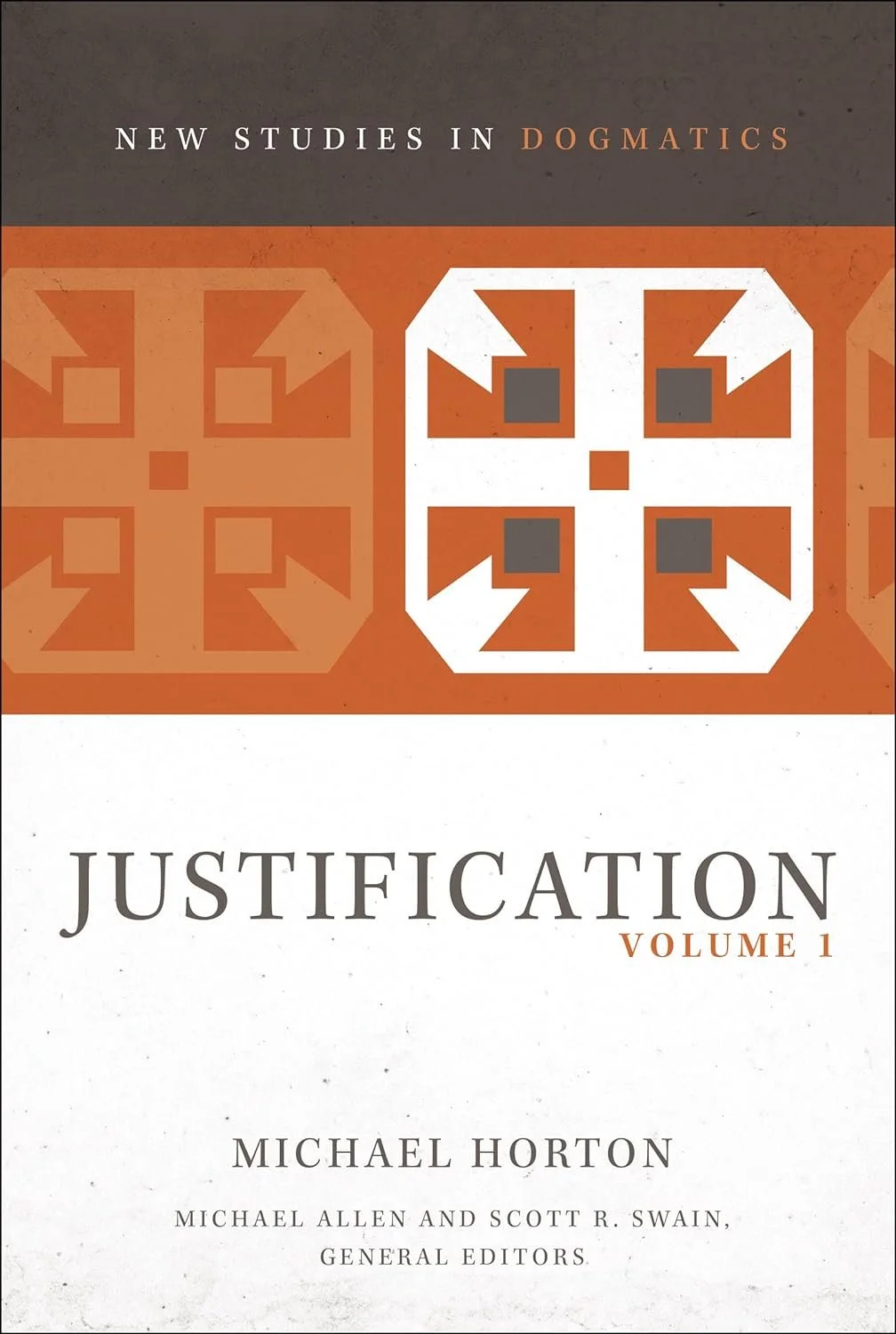The views expressed in this article are of the author only and do not necessarily represent those of the Center for Pastor Theologians.
“I have no idea how many times I have heard or read contemporary theologians and pastors assert with solemn finality that Luther’s question ‘How can I find a gracious God?’ is just not ours today,” writes Michael Horton—the J. Gresham Machen Professor of Systematics and Apologetics at Westminster Seminary California—at the outset of his massive, two-volume work Justification. “Consequently,” he continues, “we can move on as if the question of justification, much less the arcane debates surrounding it, matters little to the average person today. Or can we?” (p. 21). In over 900 pages, Horton answers this question with a resounding “no,” by delivering a consistent, exhaustive, and powerful argument that not only can we not move on from the question, but why (and how) its importance is relevant to every age. Throughout this work, and one of its major strengths, Horton returns time and time again to various historical and contemporary interlocuters with the insight and precision of someone who, for decades, has taught, written, expounded, and preached about this important theme with the mind of a theologian and the heart of a pastor.
Volume 1 provides a historic overview of the doctrine with a particular emphasis on setting the stage for the theological upheaval that was the sixteenth century Reformation, and then laying out the ramifications for this renewed interest among Protestant churches going forward. Although writing from within a confessional Reformed tradition, Horton nevertheless articulates the wide-ranging agreement among the various churches for whom this doctrine is a central concern and, as such, will be of interest to anyone looking to better understand why this remains such an important theological issue. Indeed, from the outset, he presents one of the goals of his project, “Say whatever you like about the Protestant Reformers, but they were not obsessed with introspection. On the contrary, they were gripped by the experience of meeting a stranger, an other, to whom they were accountable. Luther didn’t fear an inner judgment but a real one on the great stage of history, with banners flying and a fight to the death . . . One would never invent this sort of religion as therapy for self-improvement, self-empowerment, and tranquility of mind. And regardless, Luther would not have recognized such a religion, much less sympathize with it. If there are lingering doubts about that, I hope that this book lays them to rest” (p. 25).
In volume 2, Horton engages with contemporary arguments surrounding justification with a particular eye toward the (so-called) New Perspective on Paul, Radical Orthodoxy, Roman Catholicism, and the new Finnish interpretation. This volume provides an indispensable treasury of insights and citations that can only come after decades of interaction with the subject matter and, as such, will be an enduring resource for any theological library. Throughout this volume, Horton continually seeks to correct various interpretations of Luther and Calvin, in particular, by maintaining that they are, and have been, consistently misrepresented by their most vocal opponents. “The bulk of contemporary criticism of the Reformation,” he writes, “comes from scholars with some background in evangelical-revivalist traditions whose biblical scholarship considerably outweighs their familiarity with the actual texts of confessional Lutheran and Reformed traditions. Consequently, the impressive guns of biblical scholarship are often aimed at straw opponents” (Vol. 2, p. 350n75). Herein lies the real value of this work, because only someone who has spent decades researching, debating, defending, and yes, correcting his/her theology on a particular point can speak with such insight and clarity. It is not hard to imagine the countless hours of conversation and reflection that have gone into each page of this book, where every footnote, every reference, every objection carries within it years and years of interaction with students, congregants, scholars, and friends.
In many ways, this is only a book that Michael Horton could have written, because he has been at the forefront of the defense of justification, a tireless defender of the importance of the Reformation for the sake of the church throughout his entire career, and these two indispensable volumes are the fully ripened fruit of that labor. I was introduced to his work over twenty years ago and have been an avid reader and admirer of his writings and work with Modern Reformation and the White Horse Inn ever since. In many ways, it is his example of a man writing with the mind of a theologian and the heart of a pastor that not only inspired me to take up theology, but more importantly, helped open my eyes to behold the amazing grace of the God who justifies the ungodly (Rom 4:5) out of which the Apostle Paul could write with great confidence that, “nothing in all creation will be able to separate us from the love of God in Christ Jesus our Lord” (Rom 8:39). Commenting on this statement, Horton writes, “One need not agree with everything Luther, Calvin, or the other Reformers said to be able to acknowledge that the entire pith of their message was nothing more or less than that Pauline summary. And that is why the Reformation still matters today” (Vol. 1, p. 375).
John D. Koch (PhD University of Humboldt) is the Associate Rector at Christ Church Anglican in Mount Pleasant, SC. In addition to various articles and lectures, he is the author of The Distinction Between Law and Gospel as the Basis and Boundary of Theological Reflection (Mohr/Siebeck, 2016) which explores the interrelationship between the doctrine of justification by faith alone and the preaching and teaching ministry of the church. He is a member of the St. Augustine Fellowship of the Center for Pastor Theologians.




